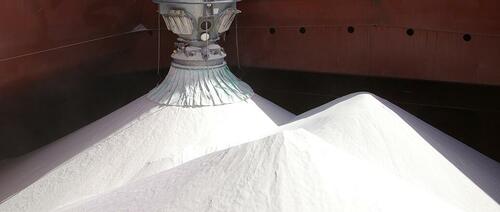Australia Slaps Russia With Alumina Export Ban, Catapults Aluminum Prices Higher
Fragile supply chains are crumbling worldwide after Russia invaded Ukraine. The latest disruption comes from Australia, as the world’s top alumina exporter has shunned shipments to Russia, sending aluminum spot prices higher.
Bloomberg reports Australia’s top alumina refineries choked off flows of alumina to Russia’s United Co. Rusal International PJSC, the world’s second-largest aluminum company by production output. Rusal has a 20% stake in Rio Tinto Group’s Queensland Alumina Ltd refinery. Rio is working out options regarding its partnership with Rusal.
Australia accounts for 20% of Russia’s alumina supply, also called aluminum oxide, which is derived from bauxite ore and sent to refiners and turned into alumina. Bulk carriers then ship the alumina to smelters in Russia, where it’s then transformed into aluminum.
The Australian government said Sunday alumina and aluminum ores exports to Russia had been banned immediately.
“There was a ship that was due to dock in Australia this week to collect a load of alumina bound for Russia,” Prime Minister Scott Morrison said. “That boat is not going to Russia with our alumina.”
Even though aluminum was not on the targeted sanction list imposed by Western countries after Russia invaded Ukraine, large corporations are isolating Russia and or disinvesting in the country. Australia is throttling supplies that could severely impact the Russian output of aluminum.
We detailed how much of the world relies on Russian aluminum in a weekend commodity note.
Since Australia has banned exports of critical ingredients to produce aluminum in Russia, one should expect possible supply disruptions or at least declining supplies of the metal.
Aluminum prices jumped as much as 5.1% to $3,554 a ton. Bloomberg notes today’s news “reinforces the case for LME prices to find a foothold above $4,000/ton.”
So how does this impact, everyday people? Well, aluminum is used in anything from beer cans to beer kegs, kitchen utensils, window and door frames, consumer electronics, household appliances, aircraft, and spacecraft components.
Tyler Durden
Mon, 03/21/2022 – 11:06

